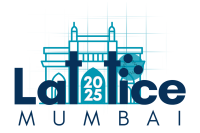Speaker
Description
The Harrow–Hassidim–Lloyd (HHL) algorithm offers an exponential quantum speedup for solving sparse, well-conditioned linear systems of equations. We have implemented the HHL algorithm and evaluated its performance across systems of varying sparsity and recorded each class separately with sizes upto $N=1024$.
The principal bottleneck of HHL lies in Quantum Phase Estimation. To address this, we explored several approximation strategies: Suzuki–Trotter decomposition, a truncated Taylor series expansion, block encoding with quantum signal processing, and adiabatic-inspired evolution. These modifications substantially reduce circuit complexity and improve fidelity compared to naive implementations. In particular, Taylor expansion and block encoding consistently outperformed Trotterisation for less sparse systems, while Trotterisation was found to be suited to sparse systems.
Performance was measured using fidelity and execution time. Results on quantum simulators demonstrated high-fidelity solutions for sparse systems, while with dense systems the growing circuit depth lowers fidelity. These implementations were further tested on IBM Quantum hardware, which confirmed feasibility but revealed substantial noise and runtime overheads. Our results highlight the importance of matrix structure and Hamiltonian simulation strategy in practical HHL implementations, offering guidance for scaling the algorithm on near-term quantum devices.
| Parallel Session (for talks only) | Quantum computing and quantum information |
|---|
